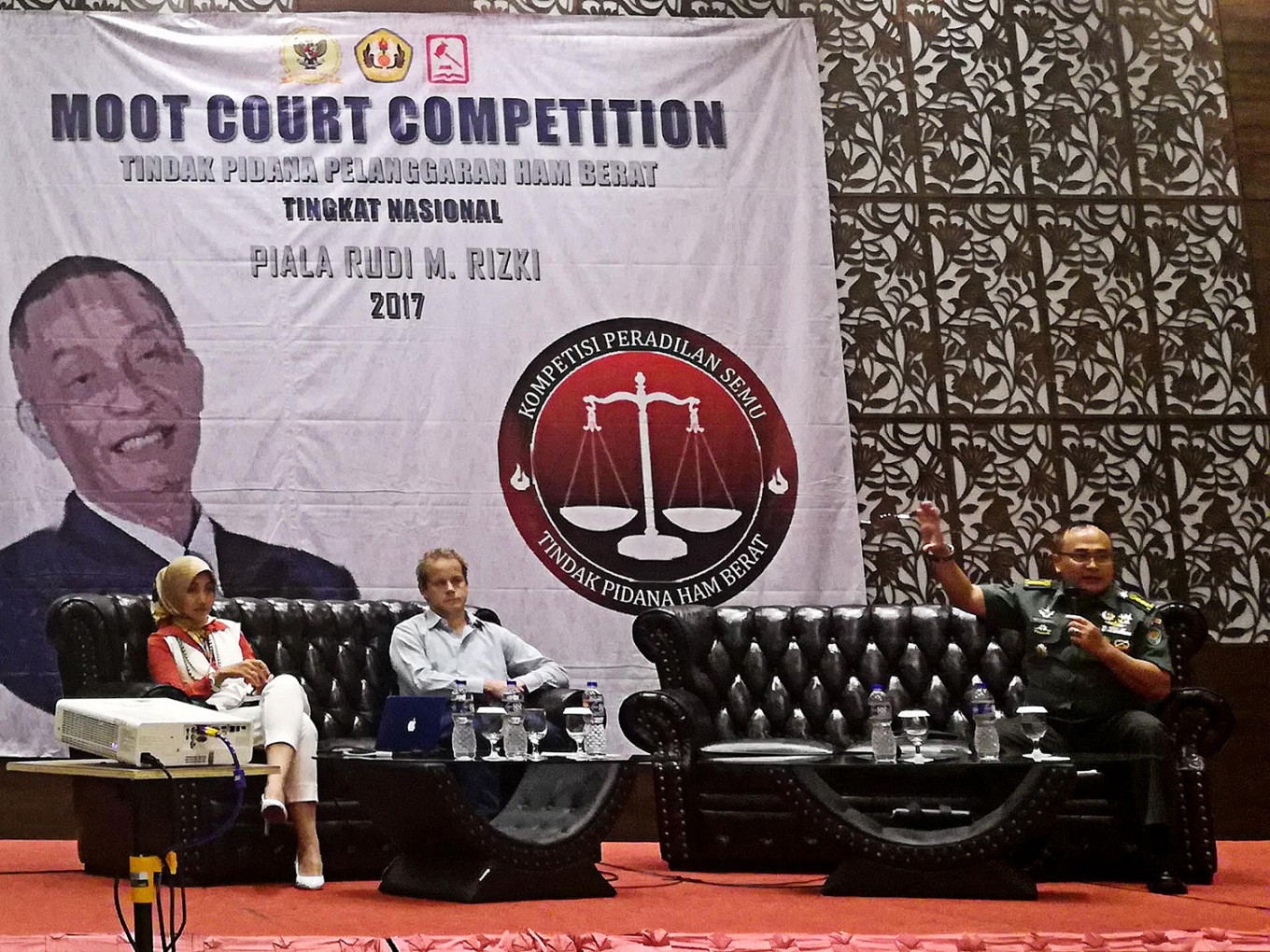Popular Reads
Top Results
Can't find what you're looking for?
View all search resultsPopular Reads
Top Results
Can't find what you're looking for?
View all search resultsLand acknowledgment crucial to prevent human rights violations
Change text size
Gift Premium Articles
to Anyone
E
xperts have warned that vibrant economic development in Southeast Asia has potential to trigger human rights violations, especially when the state fails to acknowledge the rights of people over land.
Civil societies could prevent rights violations by guarding development in their respective areas, they further say.
Norwegian Center for Human Rights adviser Aksel Tømte said potential for human rights violations began to open when the state handed over parts of its responsibilities on rights protection to corporations or business entities. He referred to the Voluntary Guidelines on Responsible Governance on Tenure (VGGT), which had been acknowledged as one of international guidelines on people’s rights over land but was not considered a legal instrument because it was voluntary in nature.
“This guideline has proposed companies to carry out a social impact analysis and to create a social complaint mechanism. But there is a problem here. Not all people agree that state functions, which are crucial, should be handed over to or controlled by companies.
This is because the companies represent the interests of stakeholders, which could be different from the interests of the people,” said Tømte during the opening of Moot Court Competition’s final stage in Bandung, West Java, on Friday.
Tømte further explained that many legal problems between corporations and the people were related to unresolved land ownership status.
This often happened in oil palm plantation schemes, in which companies gave indigenous people who did not have land certificates rights over the land, or often called plasma farmers. “They are prone to lose their rights over the land,” said Tømte. (ebf)










